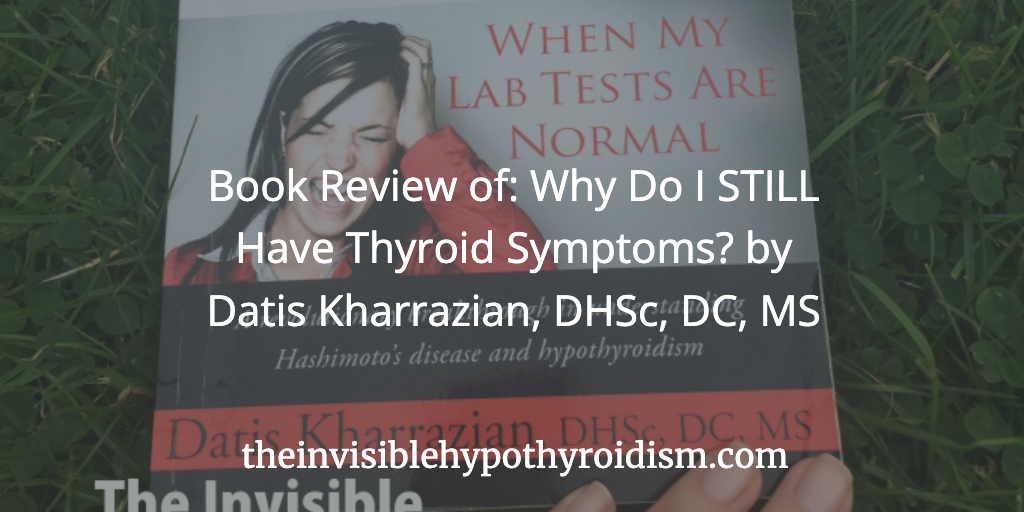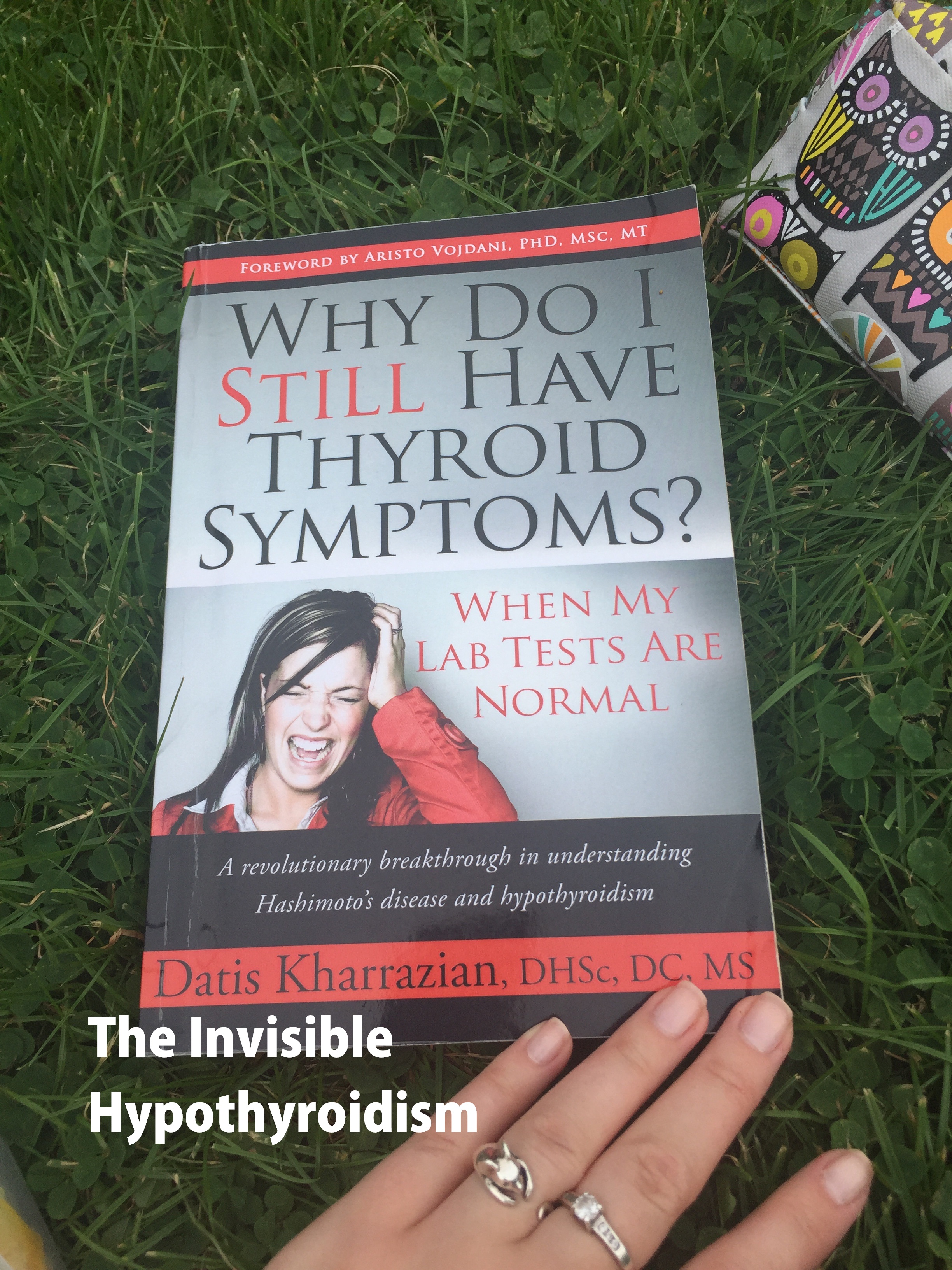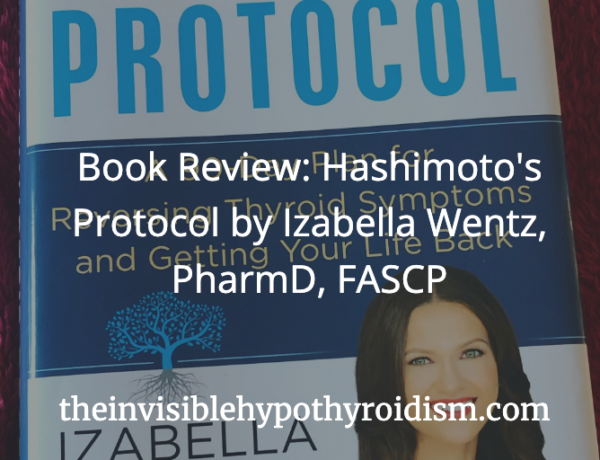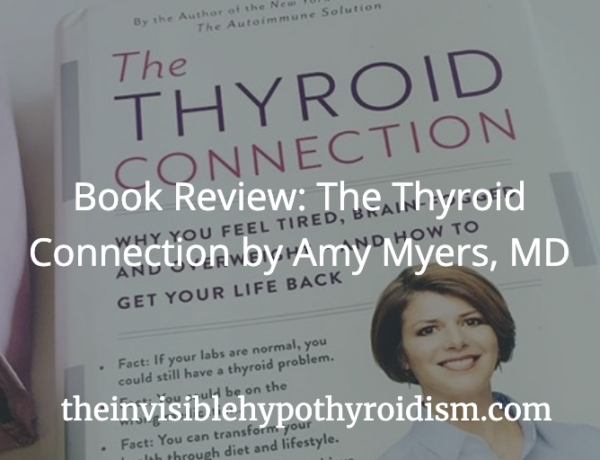This book explores more in-depth, what could be causing your hypothyroidism, namely Hashimoto’s Thyroiditis, and what has led to it.
Dr Kharrazian particularly focuses on how diet and lifestyle changes could potentially reverse your condition so you no longer need thyroid medication.
This is a very popular thyroid book.
I’ll reference back to this book and what I’ve learned from it throughout my blog posts.
I bought this book last winter and have only just gotten round to finishing it. I’d started a few thyroid books and this one was put on the back burner whilst I finished those.
Although very scientific at times, this book is eye-opening and explores what could have started or contributed to your hypothyroidism and/or Hashimoto’s, and what you could do to reverse this, so that you no longer need thyroid medication.
Dr Kharrazian, DHSc, DC, MS, explores why your thyroid tests may be coming back ‘normal’, yet you still have symptoms and struggle daily. His main suggestion is to confirm Hashimoto’s and thyroid antibodies. He believes in a holistic approach, i.e. looking at the whole body and not just the thyroid.
Most conventional doctors and medical professionals only consider thyroid hormone replacement medication when treating hypothyroidism, and whilst this medication is necessary for many patients to feel well, Dr Kharrazian explains that he (controversially) believes there are six patterns of thyroid dysfunction, and out of those six, only one warrants thyroid medication. These patterns are included in the book.
He is 100% all for going gluten-free and he suggests all Hashimoto’s patients at the very least go gluten-free.
The book firstly introduces you to the thyroid, how it works, what it is etc. which then follows on to his outlines of the mechanisms behind Hashimoto’s. These are very interesting chapters. He encourages you to address what the faltering thyroid says about the body and fix this. He says that when doctors just prescribe thyroid medication, it ignores the underlying problem; what has caused Hashimoto’s to occur and destroy the thyroid gland in the first place. This can lead on to more gradual destruction of the gland.
I like his analogies of the thyroid, for example imagining that the thyroid is a car with issues, and these issues must be addressed instead of ignored.
I like the case studies he uses and the references from other medical professionals throughout the book. The way in which they are presented in boxes and ‘bubbles’ makes it easier to read and digest, which is particularly great for those of us with thyroid brain fog.
He covers the swinging of TSH levels and Hashimoto’s which is so very important to be aware of, as well as iodine supplementation, a controversial topic. He explains supplementing iodine when you have Hashimoto’s is like throwing gas on a fire.
He covers the tests you need doing to check for Hashimoto’s and also insulin resistance and PCOS which I haven’t come across before in another thyroid book. (For a PCOS Blood Test, click here.)
I particularly found his explanation of how ranges are worked out for lab tests, interesting and eye-opening. He explains that lab ranges are determined by the average of the patients who had blood tests undertaken by that lab in that past year. Therefore, these are often skewed as we can assume that the people having blood tests are in some degree of poor health, with some already taking thyroid medication, or have an undiagnosed thyroid condition. Functional ranges for tests are much more narrowed which allow for prevention before a condition or disease becomes ‘too bad’.
The chapter which was the most helpful to me was on blood sugar imbalances. The symptoms sounded so much like me that I bought a home testing kit to check my blood sugar, and I’m finding it does drop a little low sometimes, so I’m learning how to manage my diet a better to keep this balance. He covers hypoglycaemia and insulin resistance symptoms. Both things may be common with thyroid patients, so worth checking out.
He covers adrenal health and gut health also, which is really interesting. Learning about both of these areas is crucial for thyroid patients and their doctors. Oestrogen dominance is explained quite a bit, as well as how contraceptive pills and hormone creams and potions could have lead to your thyroid symptoms, though whether oestrogen dominance is a real issue, is still debated to this day and not recognised in mainstream medicine.
You can get a copy of this book from Amazon.
Have you read this book? What did you think?
You can click on the hyperlinks in the above post to learn more and see references to information given.





